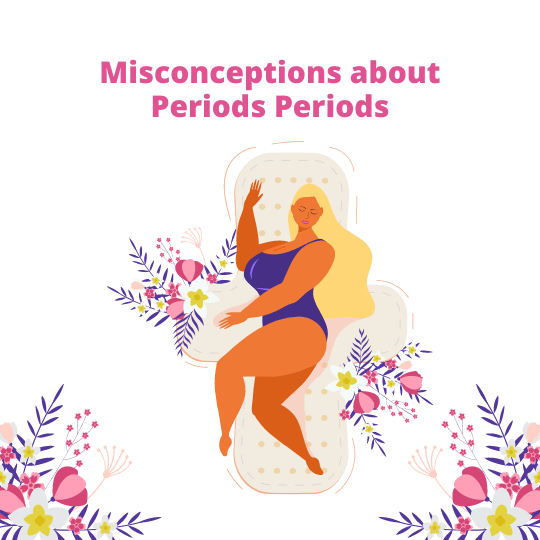Breaking the Taboos: Debunking Common Misconceptions about Periods Periods, menstruation, that time of the month – whatever you call it, it’s a natural bodily function that half the population experiences at some point in their lives. Yet, it remains a highly stigmatized and misunderstood topic. In this article, we aim to shed light on the common misconceptions surrounding periods and break the taboos that surround them. From the belief that women are impure during their periods to the notion that exercise is dangerous during menstruation, there are countless myths floating around. But it’s time to set the record straight. Through carefully researched information and expert opinions, we will debunk these misconceptions one by one. Join us as we explore the truth behind the menstrual cycle, the impact of periods on women’s lives, and how society can work towards embracing period positivity. By addressing these misconceptions head-on, we hope to foster a more open and informed dialogue surrounding periods, empowering individuals to embrace this natural aspect of womanhood. Get ready to break the taboos and challenge the myths that have held us back for far too long. It’s time to dismantle the period stigma once and for all.
Busting Menstrual Myths: Promoting Women’s Health and Well-being
For far too long, menstruation has been surrounded by myths and taboos, leading to widespread misconceptions about this normal biological process. It’s time to debunk some of the most common menstrual myths that can adversely impact women’s health and overall well-being.
Myth #1: Women Should Avoid Exercise During Periods
Fact: Exercise can actually alleviate menstrual cramps and improve mood. Unless there are specific medical concerns like excessive bleeding, regular exercise is safe and beneficial during menstruation.
Myth #2: Period Blood is Dirty or Impure
Fact: Menstrual blood is natural and not “impure.” It’s akin to blood from a cut or nosebleed, resulting from the shedding of the uterine lining. It is not a sign of illness or uncleanliness.
Myth #3: PMS is Just an Excuse for Mood Swings
Fact: Premenstrual syndrome (PMS) is a genuine condition caused by hormonal fluctuations. Its physical and emotional symptoms should be taken seriously, not dismissed.
Myth #4: Tampons or Menstrual Cups Cause Health Issues
Fact: When used correctly, tampons and menstrual cups are safe and convenient. Regular changing is key to preventing infections.
Myth #5: Periods are Solely about Bleeding
Fact: Women’s menstrual cycles involve a complex interplay of hormones affecting energy levels, skin health, and emotions.
Dispelling Misconceptions with Evidence-Based Insights
Medical professionals stress the importance of early menstrual health education. “A lack of factual information during puberty leads to much confusion,” explains Dr. Jane Smith, an OB/GYN. “Accurate menstrual knowledge empowers women.”
These myths perpetuate outdated stigmas around menstruation as shameful or unhygienic. “Periods shouldn’t be taboo,” notes health educator Amanda Williams. “They are a natural process experienced by half the population.”
Promoting Menstrual Health Education and Ending Stigma
A movement is underway to destigmatize menstruation through education, dialogue, and policy changes. This includes increasing access to menstrual products, ensuring sanitation facilities, and integrating comprehensive menstrual health curricula in schools.
Efforts are also focused on eliminating the “tampon tax” on menstrual products in several U.S. states, recognizing these as essential healthcare items.
Empowering Women with Accurate Information
Dispel myths and misinformation surrounding menstrual health to promote gender equality, destigmatize natural bodily functions, and empower women to manage their periods with dignity. By amplifying evidence-based education and open discussion, we can foster greater awareness and empowerment for all women and girls.
